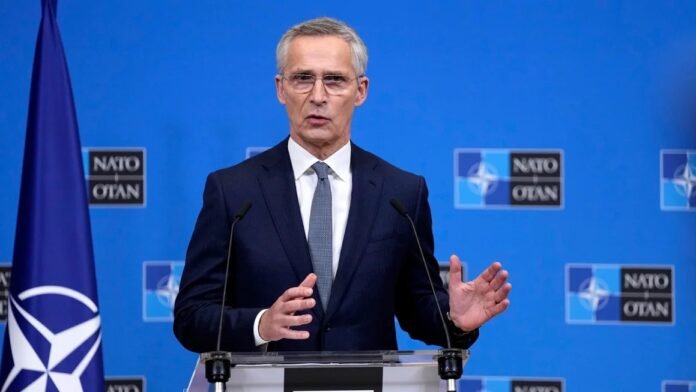
Former US President Donald Trump’s recent remarks regarding NATO’s collective defence clause have ignited a firestorm of controversy, raising serious doubts about the enduring strength of US commitments to its allies.
During a campaign event, Trump declared that he would not necessarily abide by the core tenet of NATO, stating that he would not offer protection to member countries failing to meet spending guidelines, leaving them vulnerable to Russian aggression.
NATO Secretary-General Jens Stoltenberg swiftly condemned Trump’s comments, emphasizing that any suggestion of allies not defending each other undermines the fundamental security of the alliance.
Stoltenberg reiterated NATO’s unwavering stance, asserting that an attack on any member nation would be met with a united and forceful response.
The repercussions of Trump’s statements reverberate across continents, sparking fresh concerns among European and Asian allies.
Amidst ongoing conflicts and rising geopolitical tensions, Trump’s words cast a shadow over the reliability of US commitments, particularly in the face of Russian aggression in Ukraine and Chinese assertiveness in the Indo-Pacific region.
Trump’s tenure in office was marked by persistent criticism of NATO’s spending disparities and defence pacts with Asian allies. However, his latest remarks represent an unprecedented departure from longstanding US foreign policy principles.
Against the backdrop of Russia’s full-scale invasion of Ukraine in 2022, which precipitated Europe’s most significant conflict since World War II, Trump’s stance on NATO raises alarming questions about the future of transatlantic security.
As NATO continues to support Ukraine’s defence efforts against Russian aggression, the alliance finds itself navigating a delicate geopolitical landscape.
Sweden and Finland’s pursuit of NATO membership underscores the growing apprehension among neighbouring states, while NATO’s collaboration with Indo-Pacific partners reflects broader efforts to counter China’s expanding influence.
In response to Trump’s comments, the White House condemned his remarks as “appalling and unhinged,” drawing a sharp contrast with President Joe Biden’s commitment to strengthening American alliances for national security interests.
Biden’s administration has sought to reassure allies of US steadfastness, particularly in the face of mounting global challenges.
Amidst escalating tensions and evolving security dynamics, the world watches with bated breath as the future of transatlantic relations hangs in the balance.
Trump’s pronouncements have reignited debates over the role of the United States in ensuring global stability and security, prompting calls for renewed diplomatic efforts and reaffirmation of collective defence principles.
As the specter of uncertainty looms large, allies and adversaries alike brace for the ramifications of Trump’s rhetoric on the world stage.
The coming months will test the resilience of international alliances and the resolve of nations to uphold the principles of peace and security in an increasingly volatile geopolitical landscape.
This article was created using automation technology and was thoroughly edited and fact-checked by one of our editorial staff members